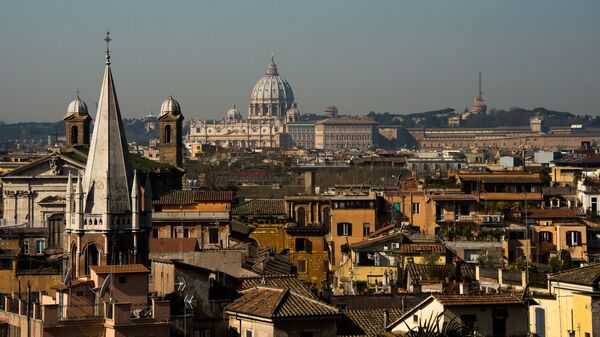"Italy wants to act as a mediator [when it comes to lifting anti-Russian sanctions] since Trump is a newcomer in the political arena. This is something that Rome has already done," he said. "The government of former Prime Minister Matteo Renzi made it clear that it was discontent with sanctions. [Restrictive measures imposed on Moscow] are costly and inefficient. Russia has coolly charted its own course."
Italian leadership has long voiced concern over the sanctions, saying that they have badly affected relations between local businesses and their partners in Russia. In October, the European Union failed to impose additional restrictive measures on Moscow due to Italy's firm opposition.
Scaglione further said that Italy is capable of doing much amid uncertainty. He was specifically referring to the fact that the country assumed presidency over the Group of 7 (G7) on January 1, 2017.
Thanks @JapanGov 🇯🇵 for your great job! Now it’s 🇮🇹 Italy’s turn to lead the #G7. Keep on following @G7 for updates and materials.
— G7 Italy 2017 (@g7) 1 января 2017 г.
Scaglione noted that the upcoming G7 summit, which is scheduled to take place in the Italian city of Taormina on May 26-27, will be unlike the preceding summits.
"This will be the first meeting of the member countries which will provide an opportunity to assess capabilities, ideas and specific decisions of Donald Trump who by that time will have been in office for months. British Prime Minister Theresa May, the leader of the country which decided to leave the EU, as well as the new president of France will also be present," he explained.
The journalist also mentioned that Rome has to tackle domestic challenges if it wants to play a more prominent role in the world.
"First of all, things need to settle down in Italy. If the Gentiloni government will position itself as a temporary government which has to fulfil three or four tasks and prepare the country to elections, it will hardly be taken seriously by its foreign partners," he said.
In December, Italy's former Prime Minister Matteo Renzi resigned after more than 59 percent of Italians had rejected a major constitutional reform initiative he championed.
Never miss a story again — sign up to our Telegram channel and we'll keep you up to speed!


